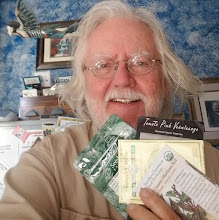Students at Venice High School's Learning Garden tend their plots on a sunny day last term. The Learning Garden is one of Los Angeles' most successful collaborative school/community gardens in California, turning a one acre eyesore into a learning experience that is trans-generational. David King is the garden manager (Gardenmaster) and teaches for UCLA Extension's Gardening and Horticulture Program.
In a recent article posted online by The Atlantic, Caitlin Flanagan opines that gardening as a part of a school curriculum is a waste of time and is, as her article is titled, “Cultivating Failure.” Ms. Flanagan has to do some acrobatics to come up with such a conclusion. She has painted horticulture with a brush that only sees it as manual labor and nothing more.
She loads her descriptions with powerful imagery that leaves one feeling she is hell bent on crushing some kind of sour grapes with her words. One could imagine her next article would be about the efficacy of feeding our students McDonald's and forcing them to stay inside for the entire school day. Her charge that a “recipe is easier to write than a coherent paragraph on The Crucible” evidences an elitist leaning and her evident phobia about science – God forbid that humans should be exposed to science, especially in a way that is real and fundamental to the human experience in, of all places, a school!
First and foremost, I want to call Ms. Flanagan's attention to the very real science involved in gardening, the raising of food and the preparation of food. She is evidently unaware that we all must eat and that culture, as Wendel Berry observed, is built on agriculture. She is obviously deluded by the propaganda that all food cultivation is thankless, back-breaking work for the shallow and uncluttered mind.
I wonder what she thinks of the obesity crises and why it is that just feeding a child a decent breakfast can raise test scores by 10 points (the least expensive way our society can raise those test scores!). She seems to hold that test scores are the only judge of worth, although she doesn't seem to think that teaching to test scores will not affect other school programs that I trust she does value.
Flanagan has a palpable distaste for that Chez Panisse and Alice Waters that comes across as almost pathological. I have never eaten at Chez Panisse and the people I work with in school gardens all over Los Angeles, don't strike me as the Chez Panisse crowd. Mostly, we are middle/lower class and we are eat a pretty standard fair for our daily meals.
But we eat better than most Americans of all economic strata because we know how to to grow a lot of our own food and we know the value of fresh, wholesomely grown food. The cheap food that Ms. Flanagan sees her poor Mexican protagonist picking as she opens her sorrowful and misguided tale is not the pinnacle of a modern society. It is an eyesore that needs to be remedied. We, as a society and culture, need to come to a place where the growing of food is no longer the counted as the sweat of the ignorant – but the consumption of such food by the affluent ignorant must end as well. Ms. Flanagan's ignorance permeates her entire article and The Atlantic should be ashamed for stooping to such low standards of journalism.
Speaking of 'vacuous,' Ms. Flanagan has no statistics on her side. She quotes one or two folks who tell her that gardens are not on their agenda because they have to get students to score high on those tests. I would argue that the tests are as much an error and a misguided compass as are Ms. Flanagan's conclusions. She bases her conclusions on single instances of school scores (a population of one is not science).
I would argue that no society can be great that has such a disparaging view of agriculture as Ms. Flanagan seems to hold. I would suggest that no nation can be strong if it must import the bulk of its food. I would propose that a nation might have to go to war to insure its continued supply of petroleum from abroad, but such a tactic is doomed to fail if that same nation went to war to guarantee its food supply.
I imagine she is capable of writing diatribes with the intent of provoking, but not actually doing anything. I ascribe to her all the depth of a political pundit who can only tear down the opposition but offers nothing of substance in return. I find her writing lively and lovely, but as shallow as a witty socialite who might declare, “Let them eat cake!”
That the California school system is broken and needs repair, a conclusion that cannot be refuted, cannot be honestly laid at the roots of school gardens. That there needs to be a fundamental overhaul of our schools is obvious in many different ways beyond that exit exam. Unlike Ms. Flanagan, however, I would argue that school gardens are the beacon of a new light that can shine throughout the school system. School gardens could become the beginning of a fresh approach to education that involves students in a learning atmosphere that is compelling and elemental.
It's entirely possible that we won't need farmers for the next sixty years (though I doubt it). Of course, because we all must eat, that food has to come from somewhere. A civilization as divorced from the food chain as Ms. Flanagan appears to be, is a disaster on the verge of crumbling.
This myopia cannot prevail.
This myopia cannot prevail.
david












.jpg)